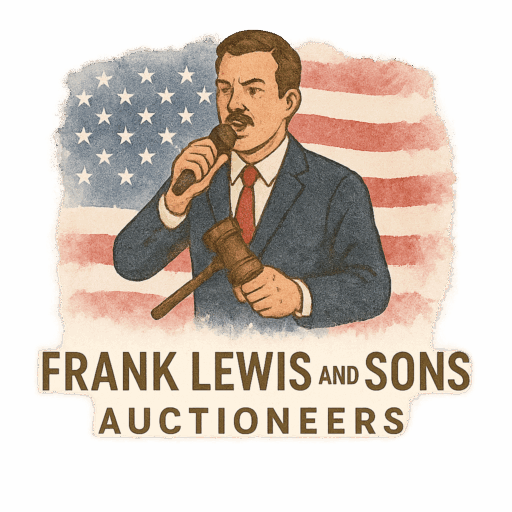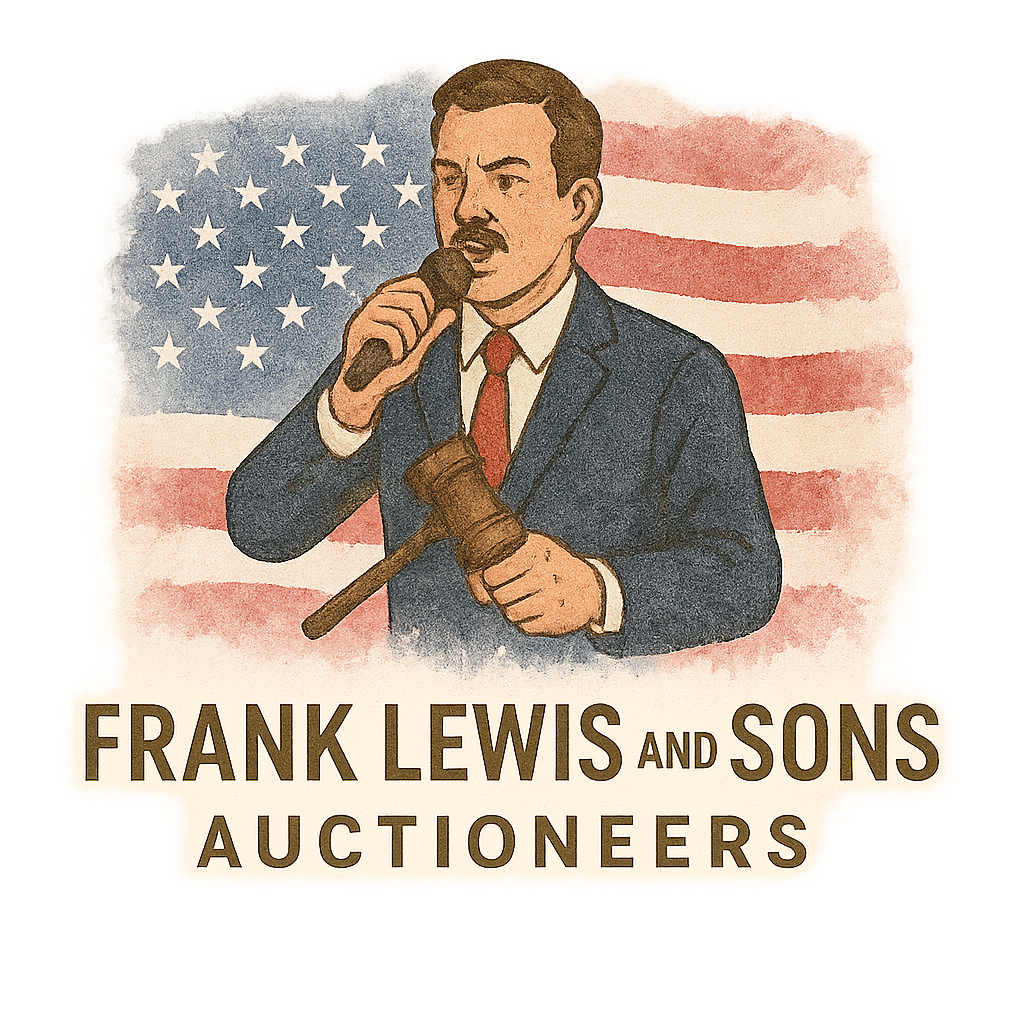Introduction: Why Ethics Matter in the Auction World
Ever been to a live auction and felt the electric energy in the room? The buzz of anticipation, the call of the auctioneer, the quick-paced bidding — it’s exhilarating! But behind every successful and fair sale is something less flashy but far more crucial: ethics.
Whether it’s estate property auctions or business equipment liquidation, professional auctioneers operate under a strict code of ethical conduct. These aren’t just guidelines — they’re commitments auctioneers make to ensure every sale is fair, transparent, and trustworthy.
Let’s dive into the 9 ethical standards auctioneers uphold in every sale, and see why they’re the real MVPs of the auction world.
1. Transparency in Every Transaction
Full Disclosure of Property Details
Transparency isn’t optional — it’s essential. Ethical auctioneers ensure that all relevant details about a property or item are fully disclosed before bidding begins.
Let’s say you’re attending a real estate auction. You want to know the zoning laws, any liens, or structural issues — and you should! That’s why ethical auctioneers disclose every known detail.
Avoiding Misrepresentation
It’s tempting to gloss over flaws to spark interest, but that’s a shortcut to legal trouble. Reputable auctioneers avoid this entirely. They’re upfront, honest, and detailed — because trust is their most valuable asset.
Check out these auctioneering tips to understand more about full disclosure practices.
2. Fair and Honest Bidding Practices
Preventing Shill Bidding
Shill bidding — fake bids designed to drive up the price — is a hard no. Ethical auctioneers will never plant fake bidders. That’s not just unethical; it’s illegal.
Instead, they encourage open, honest competition, giving every bidder a fair shot.
Equal Access to Bidding Opportunities
No bidder gets special treatment. Whether you’re a seasoned investor or a first-timer, ethical auctioneers ensure you have equal access to information, bidding platforms, and assistance.
For a deeper dive into how fair bidding works, check out the bidding tag on Lewis Auctioneers’ blog.
3. Confidentiality of Clients and Bidders
Respecting Buyer and Seller Privacy
Auctioneers handle sensitive information — think personal details, financial disclosures, and business documents. That data needs to be protected like treasure.
Data Protection in the Digital Age
With more auctions going digital, data security is even more critical. From encrypted platforms to secure storage, ethical auctioneers invest in safeguarding information.
Visit the assets tag for related advice on handling confidential property and asset sales.

4. Legal Compliance and Regulatory Adherence
Understanding Local Auction Laws
Different states and counties have their own auction laws. Top-tier auctioneers stay updated on these to avoid any legal hiccups.
Licensing and Certification
Many states require auctioneers to be licensed. Ethical professionals not only comply but go above and beyond, earning certifications and attending legal training.
The trends & legal aspects section offers insightful info on this topic.
5. Accountability and Responsibility
Providing Written Contracts
Verbal promises are great — but written contracts are golden. Ethical auctioneers use written agreements to clarify duties, timelines, and fees.
Honoring Commitments to Sellers and Buyers
An auctioneer’s word is their bond. If they promise to market aggressively, schedule previews, or handle paperwork — they follow through. No excuses.
For practical advice, visit the seller advice section.
6. Avoiding Conflicts of Interest
Third-Party Relationships
Auctioneers often work with appraisers, legal experts, or realtors. Ethical pros disclose these relationships to avoid favoritism or kickbacks.
Disclosing Dual Roles
If the auctioneer also owns the item or represents both buyer and seller, full disclosure is non-negotiable.
This ensures the auction stays fair and impartial — as it should be.
7. Professionalism in Conduct and Communication
Ethical Marketing Tactics
Marketing a property? Great. Misleading buyers? Not great.
Ethical auctioneers use honest language, real images, and accurate claims in all promotions — no clickbait.
Maintaining Respectful Interactions
Kindness counts. Whether online or in person, professional auctioneers treat everyone — buyers, sellers, staff — with respect.
It’s what separates the pros from the amateurs.
8. Commitment to Education and Continued Learning
Staying Updated with Industry Trends
The auction industry evolves fast. Ethical professionals keep up with the latest tools, laws, and techniques. They’re often the first to embrace live-streamed bidding or blockchain-based asset verification.
Continuous Skill Development
Great auctioneers never stop learning. Whether it’s mastering new platforms or enhancing communication skills, ongoing development is key to success.
For more on the skills that define auctioneers, check out the skills tag.
9. Prioritizing the Client’s Best Interests
Valuing Long-Term Relationships
Auctioneers don’t just want to make a sale — they want to build trust. Ethical pros put the client’s goals ahead of short-term profits.
Whether it’s a fast sale or a long-term estate plan, the client always comes first.
Avoiding High-Pressure Sales Tactics
Pushy salespeople are a dime a dozen. Ethical auctioneers are educators and advisors — not pressure machines. They guide, inform, and empower clients to make confident decisions.
Explore more about what makes an auction successful via the success tag.
Conclusion: Ethics as the Backbone of Auction Success
At the end of the day, ethics are the unsung heroes of the auction world. Behind every seamless transaction, satisfied client, and exciting bid is an auctioneer upholding these 9 ethical standards.
Whether you’re selling a property, liquidating assets, or attending your first auction, knowing that your auctioneer is grounded in ethics makes all the difference.
If you’re looking for professional, ethical auctioneers with a track record of success, check out Lewis Auctioneers. Their commitment to integrity, transparency, and professionalism is second to none.
FAQs
1. What is shill bidding, and why is it unethical?
Shill bidding is when fake bids are placed to artificially inflate the price. It’s dishonest, illegal, and erodes buyer trust.
2. Do auctioneers need a license to operate?
In many states, yes. Licensing ensures they follow local laws and ethical standards.
3. How do auctioneers protect client confidentiality?
They use secure databases, encrypted platforms, and strict privacy policies to safeguard all personal and financial information.
4. Can I trust online auctions to be ethical?
Absolutely — as long as you’re working with reputable firms like Lewis Auctioneers that follow strict ethical guidelines.
5. What should I expect in an auction contract?
Clear terms on commission, responsibilities, timelines, and expectations from both parties.
6. How do I know an auctioneer is ethical?
Look for certifications, transparent communication, clear contracts, and positive client testimonials.
7. Why is continued education important for auctioneers?
Because the industry is evolving. Ethical auctioneers stay sharp by learning about trends, tech tools, and legal changes to serve clients better.


